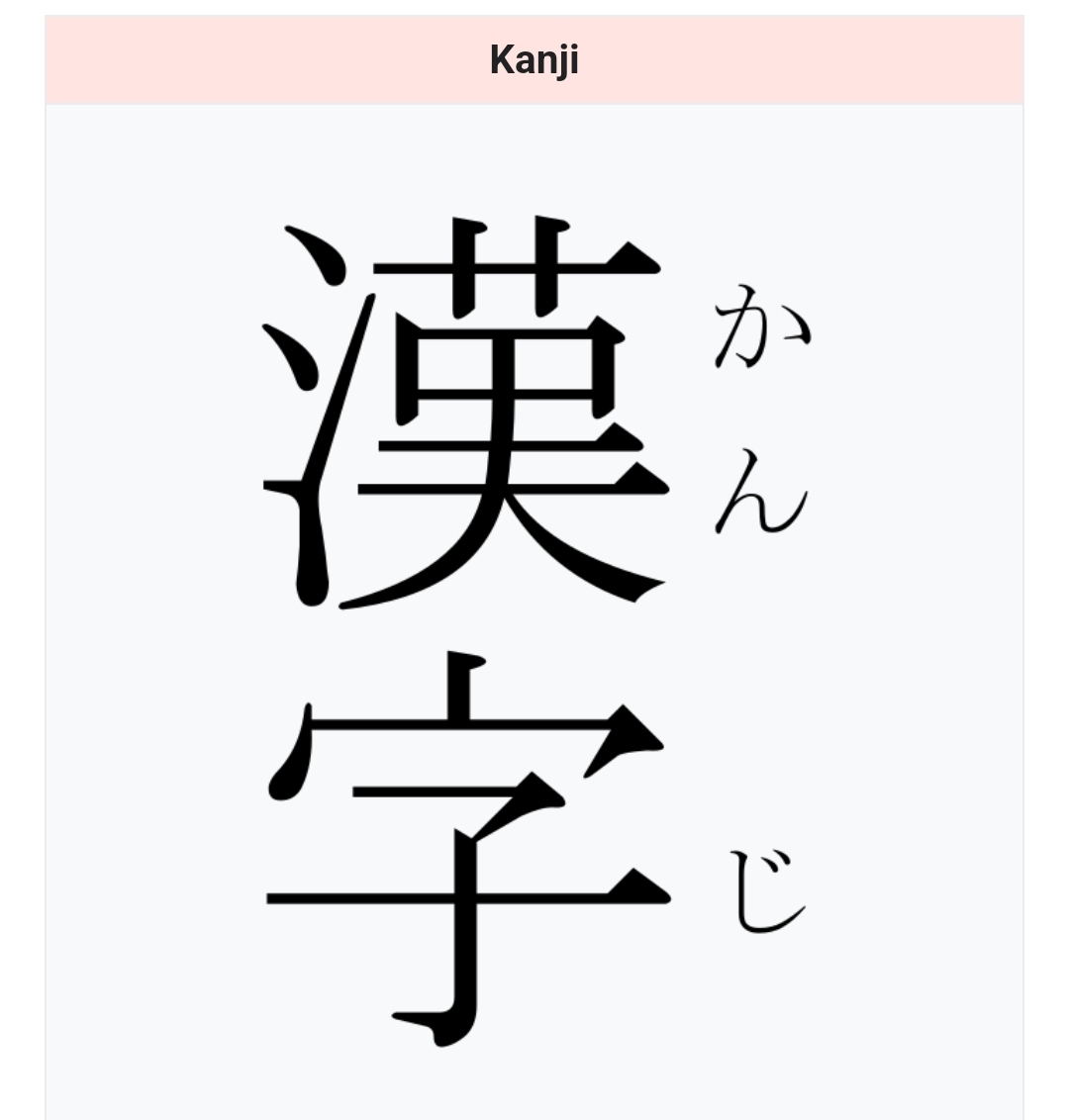1. Today's topic
Kanji: The Building Blocks of Japanese Writing
Kanji are Chinese characters adopted into the Japanese language. They represent a concept or idea, rather than a sound. This is unlike hiragana and katakana, which primarily represent sounds.
Why Kanji are Important:
* Rich Vocabulary: Kanji significantly expand the Japanese vocabulary, allowing for more nuanced and complex expressions.
* Cultural Heritage: They reflect Japan's historical and cultural ties to China.
* Efficiency: Kanji can represent multiple syllables or words with a single character, making writing more efficient.
Learning Kanji: Tips and Tricks
* Radicals(Bushu): Break down kanji into their component parts, called radicals. Learning radicals can help you recognize and remember kanji more easily.
Example:
The kanji "人" (ひと) means "person." It is a common radical found in many other kanji.
On and Kun Readings
* On Readings: These are readings derived directly from the Chinese pronunciation of the kanji. They are often used in loanwords and technical terms.
* Kun Readings: These are native Japanese readings that have evolved over time. They are more common in everyday language.
Example: The kanji "本" can have the on reading "ホン" (hon) in words like "本" (hon, book) or the kun reading "もと" (moto) in words like "根本" (konpon, root).
Compound Kanji
Many kanji are formed by combining two or more radicals. This can make them more complex to remember, but it also provides clues about their meaning.
Example: The kanji "国" (くに, country) is composed of the radicals "田" (ta, field) and "王" (ō, king). This suggests a connection between the land and the ruler.
Kanji and Grammatical Particles
Kanji can be used to represent grammatical particles, such as "を" (o) and "が" (ga). These particles indicate the grammatical function of nouns in a sentence.
Kanji and Cultural Context
Understanding the cultural context behind kanji can enhance your appreciation of the language. Many kanji have historical or philosophical significance.
2- Today’s news
Kura Sushi to open its longest lane ever at Osaka Expo
https://www.asahi.com/sp/ajw/articles/15425958
5 Asian countries with best local transport system
https://timesofindia.indiatimes.com/travel/destinations/5-asian-countries-with-best-local-transport-system/articleshow/113435791.cms
Japan
The Japanese public transport system is renowned for its punctuality, speed, and cleanliness. When in Japan, one must experience the famous Shinkansen or the bullet trains. These superspeed trains will take you to major cities like Tokyo, Osaka, and Kyoto in no time. Also, the Japanese metro system is very vast, well-maintained and very reliable. If you plan to explore the more rural areas, buses and local taxis are easily available from the cities.


No comments:
Post a Comment